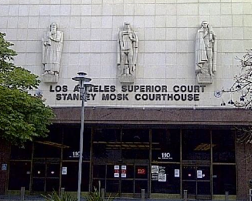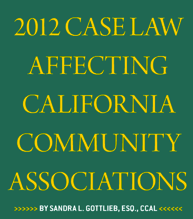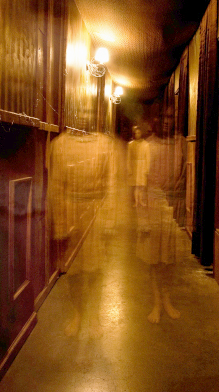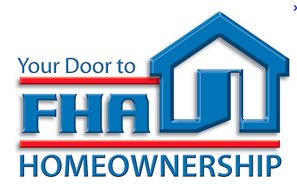Blog post by David Swedelson, Condo Lawyer, HOA Attorney and head of SwedelsonGottlieb’s Litigation Team
 Please do not blame your attorney (at least none of the attorneys at SwedelsonGottlieb), but it is likely that any lawsuits that your community association may file will likely take longer to litigate than in the past. This will impact all courts in California. For example, and in response to additional budget cuts, the Presiding Judge of the Los Angeles Superior Courts recently announced new and additional changes that may be implemented in the Los Angeles court system within the next several months. These changes will significantly impact the amount of time it takes to bring matters before the court, as well as the accessibility of the court system to litigants.
Please do not blame your attorney (at least none of the attorneys at SwedelsonGottlieb), but it is likely that any lawsuits that your community association may file will likely take longer to litigate than in the past. This will impact all courts in California. For example, and in response to additional budget cuts, the Presiding Judge of the Los Angeles Superior Courts recently announced new and additional changes that may be implemented in the Los Angeles court system within the next several months. These changes will significantly impact the amount of time it takes to bring matters before the court, as well as the accessibility of the court system to litigants.
Continue reading
Articles Posted in Current Affairs
David Swedelson Quoted in CAI National’s New Issue of Common Ground
At https://www.hoalawblog.com, David Swedelson has posted numerous articles on efforts by condominium associations to ban smoking in common areas, exclusive use common areas and even within units. (See our prior posts here, here and here.) The national chapter of Community Associations Institute recently published some additional comments from David in a featured story in the January/February issue of Common Ground magazine. “I’m thinking more and more associations will start going totally no-smoking (by choice),” he said. “We’d love it if municipalities did it for us, but I’m concerned about the enforcement aspect of it and whether the municipalities expect the association to get involved in it.”
David Swedelson can be contacted at dcs@sghoalaw.com.
2012 Case Law Affecting California Community Associations
 Each year, there are a number of cases, Court of Appeal or California Supreme Court decisions involving California community associations. These are cases that we lawyers rely upon. Last year (2012), there were several important cases that are important for community association managers and board members to know about. The details of the cases are discussed in an article that Sandra Gottlieb prepared for the Greater Los Angeles Chapter of Community Associations Institute. Below is a brief summary of the highlights:
Each year, there are a number of cases, Court of Appeal or California Supreme Court decisions involving California community associations. These are cases that we lawyers rely upon. Last year (2012), there were several important cases that are important for community association managers and board members to know about. The details of the cases are discussed in an article that Sandra Gottlieb prepared for the Greater Los Angeles Chapter of Community Associations Institute. Below is a brief summary of the highlights:
• Arbitration clauses contained in CC&Rs are enforceable by a developer unless proven to be unreasonable. (Pinnacle Museum Tower Association v. Pinnacle Market Development)
• A board candidate who disparages another candidate is not protected by the First Amendment, litigation privilege or Anti-SLAPP statute. (Silk v. Feldman)
What the Heck Is A Power of Attorney And How Does It Work For Board Meetings?
 Blog article by David C. Swedelson, Esq.
Blog article by David C. Swedelson, Esq.
On occasion, a director will seek to appoint another person to attend board meetings on their behalf (and make board decisions and vote as if they were a board member), or a homeowner’s friend or relative will attend the homeowners forum and attempt to speak on the homeowner’s behalf. This article is intended to address and explain the concept of “Power of Attorney”, or in other words, the ability for a person to appoint a representative to act on their behalf.
Can a representative attend executive or open session meetings and sit in the director’s seat, make and vote on items of business within the board’s authority?
Complaints From Annoyed Neighbors? Loud Sex, Smoke & Noise!
 Blog Post by David Swedelson, Partner SwedelsonGottlieb
Blog Post by David Swedelson, Partner SwedelsonGottlieb
As community association attorneys, we are often called upon to deal with neighbor to neighbor complaints and disputes. Well, often is probably an understatement. How about daily? These complaints generally deal with smoke from cigarettes and more lately from (medical) marijuana, hard surface floor noise, owners that fail to pick up after their pets, loud stereos and TVs, and sometimes complaints regarding loud sex. At most condos and HOAs, residents expect their association to be their intermediary. And sometimes we do receive copies of some interesting notes that had been passed on to the offending owner or resident, and sometimes they are quite comical.
A manager of condominium associations referred me to a series of photos posted by the Huffington Post with the title “Most WTF Notes From Annoyed Owners” consisting of 31 photographs of notes from neighbors “reminding their fellow man to stop having sex so loudly, pick up their dog’s waste and other assorted annoyances.” The photos of notes gave me quite a chuckle, especially this one, and I thought I would share them with readers of our blog. Note that these photos include some NSFW (not safe for work) language that some might find offensive. Follow this link to see all the photos.
Unexplained Noise Issues in Condominiums – Is Your Condominium Association Haunted?
Blog post by David Swedelson, Senior Partner at SwedelsonGottlieb, Condo lawyer and Community Association Attorney
 Okay, it is Halloween. I have been representing condominium associations for 30 years and have never heard of one that is haunted, at least not with goblins and ghosts. But apparently there are some where residents have claimed to have seen ghosts. Follow this link to an article posted by a condominium law firm in Ontario, Canada. Apparently ghosts are more prevalent in condominium conversions, especially converted factories or hospitals. And of course, there is the story about spirits who were angry about the removal of gravesites on part of the condo property that was formerly a cemetery. The article also references a story from Hawaii where a security guard claimed that there was a ghost in the garbage room. (The story is about a man who murdered his wife and stuffed her body parts into garbage bags which ended up in the garbage room; the security guard believes that the wife’s ghost was looking for her head which was never found!)
Okay, it is Halloween. I have been representing condominium associations for 30 years and have never heard of one that is haunted, at least not with goblins and ghosts. But apparently there are some where residents have claimed to have seen ghosts. Follow this link to an article posted by a condominium law firm in Ontario, Canada. Apparently ghosts are more prevalent in condominium conversions, especially converted factories or hospitals. And of course, there is the story about spirits who were angry about the removal of gravesites on part of the condo property that was formerly a cemetery. The article also references a story from Hawaii where a security guard claimed that there was a ghost in the garbage room. (The story is about a man who murdered his wife and stuffed her body parts into garbage bags which ended up in the garbage room; the security guard believes that the wife’s ghost was looking for her head which was never found!)
So here’s a question: if an owner or resident complains of strange noises or voices, flickering lights or disappearing items without any logical explanation, is the condominium association obligated to hire Ghostbusters? Happy Halloween.
FHA Releases Condo Update
Community Associations Institute (CAI) reported today that the FHA has released Updated Condo Guidelines addressing many of CAI’s Areas of Concern. CAI issued the following statement (and provided this link for more information).

The Federal Housing Administration released a long-awaited revision of its condominium project approval guidelines on September 13th. The revisions to FHA condominium guidelines are contained in Mortgagee Letter 2012-18 and expire on August 31, 2014. FHA states it is making temporary adjustments to its condominium standards in response to market conditions.
Continue reading
Could Relief for Condo Associations that Seek FHA Approval Be Coming?
Blog Post by David Swedelson, Partner SwedelsonGottlieb; Condo lawyer and HOA Attorney

According to a blog post on The Maintenance Manager , the FHA may be revising the requirements for FHA approval. Maintenance Manager suggests, quoting the LA Times, that “many HOA boards have not sought approval from the FHA because of three major barriers. However, things could be changing. According to the LA times, ‘the Federal Housing Administration is readying changes to its controversial condominium rules that have rendered large numbers of units ineligible for the agency’s low-down-payment insured mortgages.'”
Continue reading
FHA May Ease Rules on Condo Mortgages/Loans
Blog post by David Swedelson, Condo lawyer, HOA Attorney and Senior Partner at SwedelsonGottlieb, Community Association Attorneys
We receive a lot of inquiries regarding FHA loans. Many condominium association boards have not sought or obtained approval from the FHA as a result of objections to the agency’s strict criteria. Many California condo associations have found that the requirements to difficult to comply with. Things could be changing. Recent news articles state that “the Federal Housing Administration is readying changes to its controversial condominium rules that have rendered large numbers of units ineligible for the agency’s low-down-payment insured mortgages.”
“The revisions could remove at least some of the obstacles that have dissuaded condominium homeowner association boards from seeking FHA approval or recertification of their buildings for FHA loans in the last 18 months. Under the agency’s regulations, individual condo units in a building cannot be sold to buyers using FHA-insured mortgages unless the property as a whole has been approved for financing.”
“FHA officials defend their requirements as prudent and necessary to avoid insurance fund losses but have expressed a willingness to reconsider some of the issues that have upset condo owners and the real estate industry.”
Continue reading
Americans with Disabilities Act Revised Swimming Pool Requirements; Do They Apply to Your Association?
By Sandra Gottlieb, Esq., HOA Attorney and Condo Lawyer
As discussed in a previous blog post, our firm has received many inquiries regarding the Americans with Disabilities Act (“ADA”) 2010 Revised Requirements as they relate to swimming pools, with a March 15, 2012 effective date. Do the ADA’s revised swimming pool requirements apply to your homeowners association? The good news is that nothing has changed from what was previously required and it is likely that these new requirements do not apply to most California community associations. We thought we would provide some additional details regarding these questions.
On September 15, 2010, under ADA Title III (“Title III”), The U.S. Department of Justice published revised, final regulations implementing the 2010 Standards for Accessible Design (“2010 Standards”) for public swimming pools applicable to “public accommodations” (see Title III, Sections 242 and 1009). Compliance with the 2010 Standards is permitted as of September 15, 2010, but was not required until March 15, 2012.
According to the ADA Title III Technical Assistance Manual (“ADA Manual”), in order to be considered a “public accommodation” with Title III obligations, an entity must be private, and it must own, lease to or operate “a place of public accommodation.” According to the ADA Manual, “a place of public accommodation” is a facility whose operations affect commerce and fall within at least one of 12 categories. Bottom line, if your association opens itself up to the public, it may be subject to ADA and thus these new regulations.
Continue reading
 HOA Law Blog
HOA Law Blog


